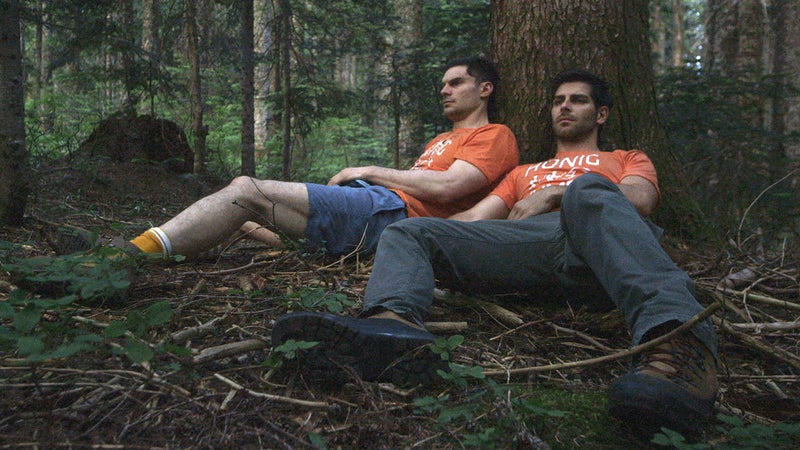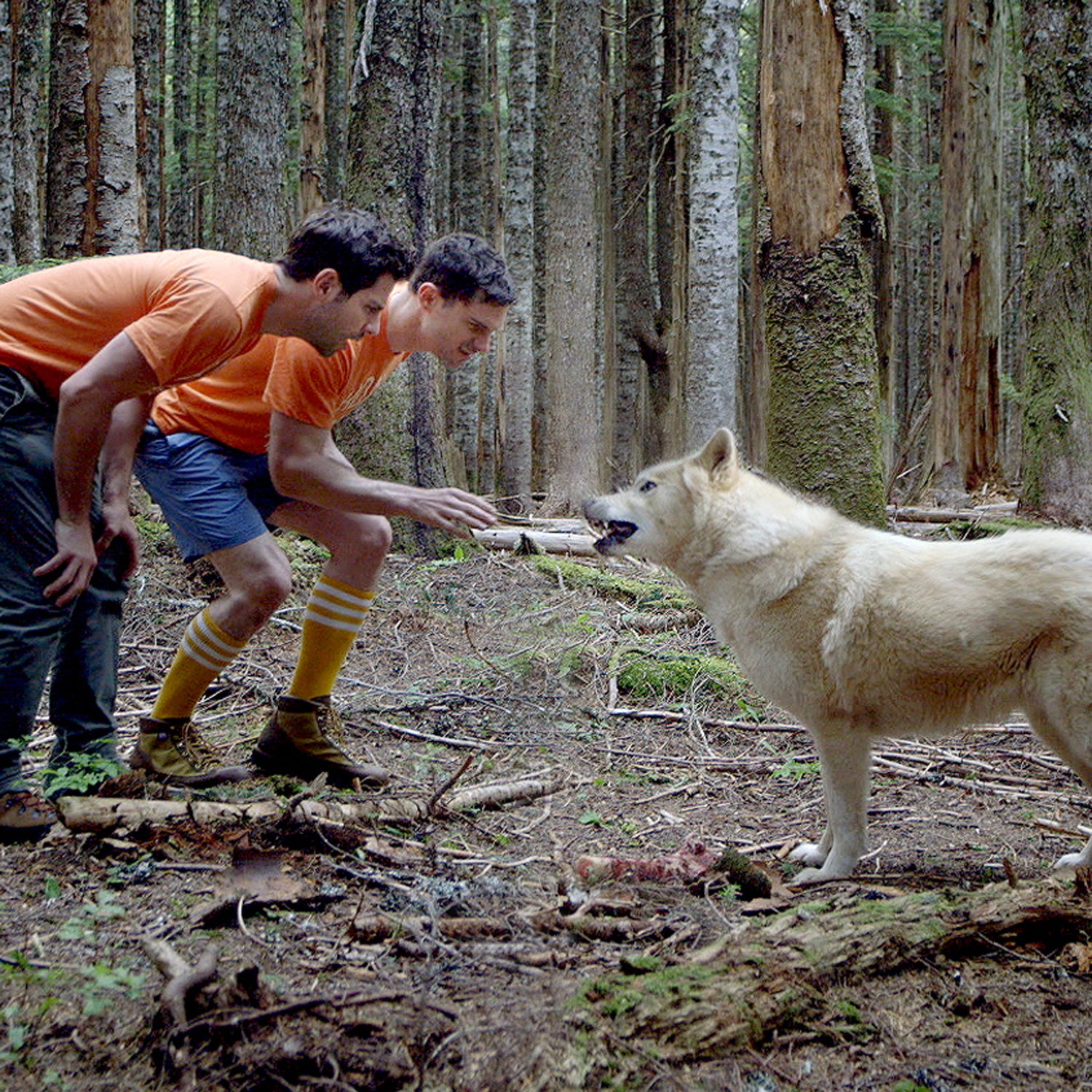Backpackers can be a precious lot: religiously counting calories and every pound that goes into a pack; endeavoring to out-minimalize and leave-no-trace one another. We eat coconut oil mixed with tuna and raisins and call it lunch; we rip pages out of guidebooks as we go, believing the ounces of weight left behind will propel us up the trail.
It’s this culture Alex Simmons chose as the backdrop for his new bromantic comedy, Buddymoon. The film is a collaboration between (an Emmy-award-nominated documentarian), (star of NBC’s “Grimm”) and German actor/DJ , who most recently appeared in Pitch Perfect 2.��
In an article for the trade magazine MovieMaker, Simmons that the three longtime friends had always wanted to make a film together but knew they’d never have the time for a prolonged project. When a 10-day window emerged, they grabbed it. Never mind the fact that they had no script, no set, and no real budget to speak of.
There's an endless supply of physics-defying gear, including sound equipment, animal costumes, and metal-framed camp chairs.
Most directors would have seen these as impossible problems. Simmons says he viewed them as an appealing challenge. His work-around? Using a backpacking trip as the driving plot and location of the film. He says the conceit also offered endless hours of diffusive sunlight, which he used to create a “natural look” he likens to the cinematography of The Revenant.
One can only hope that’s a comparison made tongue-in-cheek. If ever there were an antithesis to the 156 minutes of frozen agony that is Alejandro G. Iñárritu’s Oscar-winning drama, it is most certainly Buddymoon. Whereas The Revenant is unrelentingly and unrepentantly arduous, Buddymoon offers a frolicking and easy 80 minutes, served with a side of gluten-free hipsterness.��
The film opens with David Giuntoli playing a slightly exaggerated version of David Giuntoli. We find him jilted just days before his wedding, sitting in an empty apartment, slamming lukewarm rosé while shredding “save the date” cards and wearing a down Snuggie. He’s rescued by the perennially cheerful Flula, who swoops in and persuades David that they should take the weeklong backpacking trip originally intended as the latter’s honeymoon.��
It’s never made clear who hatched this idea as a nuptial celebration in the first place. David is a miserable hiker made all the more so after downing gallons of rosé. Anyone who has spent time on the trail will spot some clever pokes at backpacking culture in Buddymoon. In one of the film’s best scenes, a frustrated Flula snaps off the handle of David’s toothbrush with a Leatherman in hopes that a little less weight will enliven his friend’s slogging pace. Dumbfounded, David asks what he’s supposed to do with the toothbrush handle. “Just put it in your pocket,” responds Flula. “You can throw it away at the next garbage can.”
Also making an appearance: that creepy paranoid guy we’ve all encountered on the trail, who, with darting eyes, warns the Buddymooners to beware on the trail: “Not to freak you guys out or anything, but enjoy your time together. Because there are these…wolves. Government experiment wolves. They’re pumped with GMOs. They kill for pleasure.”

Most of the other moments in the film will have hiking purists whipping Milk Duds at the screen. There are little problems like the seemingly endless supply of perfectly-formed sandwiches that emerge from David and Flula’s ultra-light packs, along with more ridiculous ones like the endless supply of physics-defying gear, including sound equipment, animal costumes, and metal-framed camp chairs. There’s the fellow backpacker who whips out a full-sized guitar at an evening campfire, and the wrong turns that nevertheless conveniently lead to a well-appointed cabin containing an even more convenient box of champagne David mailed to himself.��
The impossible crescendo: A band of authentically-clad Renaissance minstrels who arrive with instruments and music stands for a private concert at an appointed place and time, even though David and Flula are wildly off schedule and presumably far from civilization.
Realistic? Hardly. And that’s probably okay, given that backcountry authenticity was never Simmons’s aim. At its heart, Buddymoon is a film about relationships, about overcoming our own foibles and tendency towards caricature so that we can embrace what really matters. That Giuntoli and Borg bring home this message almost entirely through improvisation is most certainly the film’s greatest strength. Borg in particular succeeds in being both outrageous and profound in his role as a hyper-German sound artist, contorting himself to record trees photosynthesizing and rocks being, well, rocks. Borg offers endless ebullience, as seen in his praise for the trail as nature’s “Arnold Palmer,”—the half-tea, half-lemonade beverage loved by teenagers and the retired set in equal measure. As such, he is the perfect foil to David’s brooding self-absorption and most certainly provides the biggest belly laughs of the film.��
Had Simmons used a parody or satire of backpacking culture as a vehicle to develop the absurdity of these characters and their relationship, Buddymoon might have joined the pantheon of some of the best outdoor comedies. Instead, too often it feels like Simmons leaned on the improbable merely as an easy solution to constraints caused by limited time and resources. That’s too bad. For if backpacking has anything to offer as both a trope and a lifestyle, it’s the insight we gain from taking the harder path.


